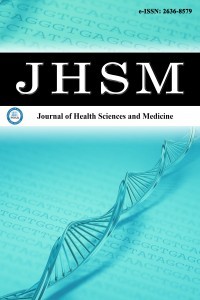1.
Canetti L, Bachar E, Berry EM. Food and emotion. BehavProcesses 2002; 60: 157-64.
2.
Ekim A, Ocakci AF. Emotional eating: Really hungry or justangry? Child Health Care 2021; 25: 562-72.
3.
Adriaanse MA, de Ridder DT, Evers C. Emotional eating: eatingwhen emotional or emotional about eating? Psychol Health 2011;26: 23-39.
4.
Macht M. How emotions affect eating: A five-way model. Appetite2008; 50: 1-11.
5.
Macht M, Simons G. Emotional eating. Emotion regulation andwell-being: Springer; 2011. p. 281-95.
6.
Vandewalle J, Moens E, Braet C. Comprehending emotionaleating in obese youngsters: the role of parental rejection andemotion regulation. IJO 2014; 38: 525-30.
7.
Péneau S, Menard E, Mejean C, Bellisle F, Hercberg S. Sex anddieting modify the association between emotional eating andweight status. AJCN 2013; 97: 1307-13.
8.
Kaplan HI, Kaplan HS. The psychosomatic concept of obesity. J.Nerv 1957.
9.
Konttinen H. Dietary habits and obesity: The role of emotionaland cognitive factors. phD Thesis, University of Helsinki, Facultyof Social Sciences, Department of Social Studies, Helsinki; 2012.
10.
Schachter S, Goldman R, Gordon A. Effects of fear, fooddeprivation, and obesity on eating. J Pers Soc Psychol 1968; 10: 91.
11.
Striegel-Moore RH, Bulik CM. Risk factors for eating disorders.Am Psychol 2007; 62: 181.
12.
Lowe MR, Doshi SD, Katterman SN, Feig EH. Dieting andrestrained eating as prospective predictors of weight gain. FrontPsychol 2013; 4: 577.
13.
Yong C, Liu H, Yang Q, et al. The relationship between restrainedeating, body image, and dietary intake among university studentsin china: a cross-sectional study. Nutrients 2021; 13: 990.
14.
Güliz U, Yarcı A. Culture of social media. DPUJSS 2017; 52: 88-102.
15.
Tutgun-Ünal A, Deniz L. Sosyal medya kuşaklarının sosyal medyakullanım seviyeleri ve tercihleri. JSR 2020; 15: 1289-319.
16.
Bair CE, Kelly NR, Serdar KL, Mazzeo SE. Does the Internetfunction like magazines? An exploration of image-focused media,eating pathology, and body dissatisfaction. Eat 2012; 13: 398-401.
17.
Spettigue W, Henderson KA. Eating disorders and the role of themedia. J Can Acad Child Adolesc Psychiatry 2004; 13: 16.
18.
Aslan SH. Beden imgesi ve yeme davranışı bozuklukları ile medyailişkisi. Dusunen Adam J 2001; 14: 41-7.
19.
Walker M, Thornton L, De Choudhury M, et al. Facebook use anddisordered eating in college-aged women. J Adolesc Health 2015;57: 157-63.
20.
Bozan N. To determine of the DEBQ's reliability and validity onturkish university students. Master Thesis, Baskent UniversityFaculty of Health Sciences, Department of Nutrition and Dietetics,Ankara; 2009.
21.
Savasir I, Erol N. Yeme tutum testi: anoreksiya nervoza belirtileriindeksi. Psikoloji Derg 1989; 7: 19-25.
22.
Fardouly J, Willburger BK, Vartanian LR. Instagram use andyoung women’s body image concerns and self-objectification:Testing mediational pathways. New Media Soc 2018; 20: 1380-95.
23.
Mills JS, Musto S, Williams L, Tiggemann M. “Selfie” harm:Effects on mood and body image in young women. Body Image2018; 27: 86-92.
24.
Lonergan AR, Bussey K, Fardouly J, et al. Protect me from myselfie: Examining the association between photo-based socialmedia behaviors and self-reported eating disorders in adolescence.Int J Eat Disord 2020; 53: 755-66.
25.
Çelik ÇB, Odacı H, Bayraktar N. Is problematic internet use anindicator of eating disorders among Turkish university students?Eat Weight Disord-ST 2015; 20: 167-72.
26.
Santarossa S, Woodruff SJ. # SocialMedia: Exploring therelationship of social networking sites on body image, self-esteem,and eating disorders. SM+S 2017; 3: 2056305117704407.
27.
Rodgers RF, Slater A, Gordon CS, McLean SA, Jarman HK, PaxtonSJ. A biopsychosocial model of social media use and body imageconcerns, disordered eating, and muscle-building behaviorsamong adolescent girls and boys. J Youth Adolesc 2020; 49: 399-409.
28.
Rounsefell K, Gibson S, McLean S, et al. Social media, body imageand food choices in healthy young adults: A mixed methodssystematic review. Nutr Diet 2020; 77: 19-40.
29.
Holland G, Tiggemann M. A systematic review of the impact ofthe use of social networking sites on body image and disorderedeating outcomes. Body Image 2016; 17: 100-10.
30.
Eşer Durmaz S, Keser A, Tunçer E. Effect of emotional eating andsocial media on nutritional behavior and obesity in universitystudents who were receiving distance education due to theCOVID-19 pandemic. J Public Health 2022; 1-10.
31.
Zeeni N, Doumit R, Abi Kharma J, Sanchez-Ruiz MJ. Media,technology use, and attitudes: Associations with physical andmental well-being in youth with implications for evidence-basedpractice. Worldviews Evidence-Based Nurs 2018; 15: 304-12.
32.
Katterman SN, Kleinman BM, Hood MM, Nackers LM, CorsicaJA. Mindfulness meditation as an intervention for binge eating,emotional eating, and weight loss: a systematic review. EatingBehav 2014; 15: 197-204.
33.
Üstündağ EG. Spor salonunda spor yapan bireylerde yemefarkındalığı ile ortoreksiya nervoza belirtileri arasındaki ilişkininincelenmesi (Master's thesis, Sosyal Bilimler Enstitüsü). 2020.

